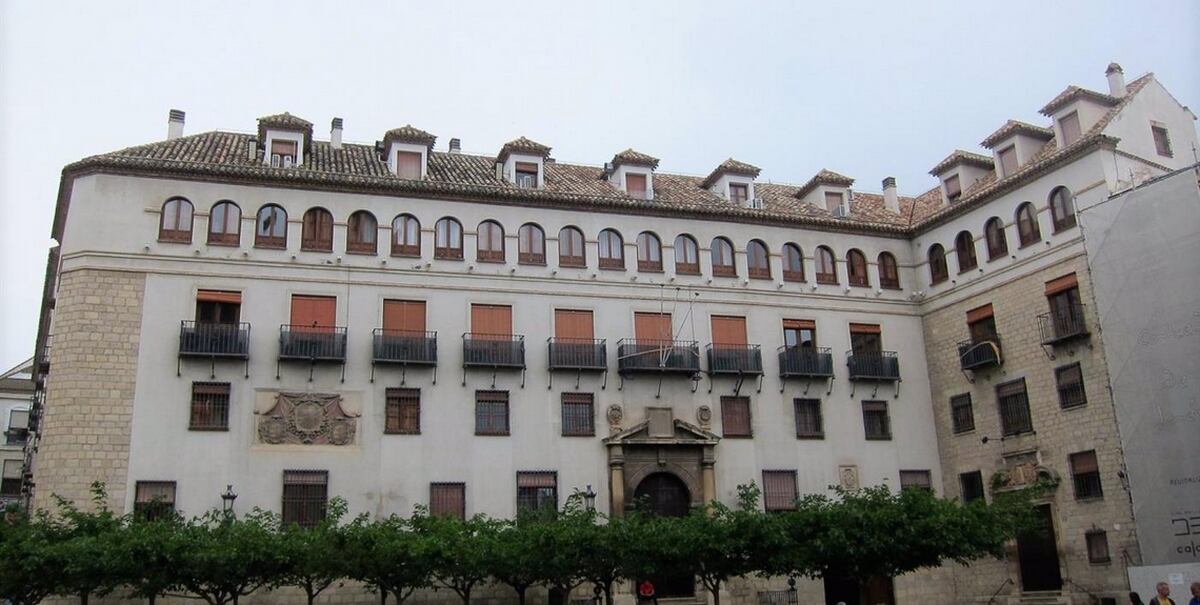―Hello, I am the bishop of Jaén and I need money.
-But you are not Don Sebastián, your voice is very hoarse.
-Yes I am, that's why I need the money, to have throat surgery.
Bewildered and incredulous.
The nuns of up to 15 convents in the province of Jaén could not believe the telephone call received in recent days in which a person, posing as the bishop of Jaén, Sebastián Chica, asked them to transfer a financial amount to be able to face a surgical intervention.
Only a congregation of nuns from Torredonjimeno took the bait and paid 3,000 euros to the scammer who posed as the bishop.
The Civil Guard is investigating the proliferation of telephone scams to different religious communities in the provinces of Jaén, Cáceres and Ávila with the same
modus operandi
: “They take advantage of the good will of these nuns who know that they are very receptive towards the bishop, who “He is his pastor father,” explains José Antonio Sánchez, pro-vicar of the Diocese of Jaén.
The researchers, who have not yet found the perpetrators of the attempted fraud, have warned that the alleged fraudsters are using artificial intelligence mechanisms with which
They manage to achieve an almost perfect imitation of the voice and, in the case of videos, even the face and gestures of the impersonated person.
In Jaén, up to fifteen attempts to scam different religious congregations have been recorded.
Most of them avoided the fraud because, after receiving the call from the false bishop, they went to the Diocese of Jaén to verify the veracity of the message received.
Only the Missionary sisters of the Our Father of Torredonjimeno (Jaén) succumbed.
In this town near the capital of Jaen, residents have shown their indignation at the scam perpetrated against nuns with a long local tradition.
On the other hand, in the same town, the Dominican nuns of the Convent of La Piedad did quickly notice the attempted scam and hung up the phone on the bishop's impersonator.
The Diocese of Jaén has ordered a pact of silence between all the convents that received the false impersonation of the bishop.
However, a spokesperson has indicated that "the majority of the nuns could not afford the payment that was requested of them", while at the same time they trust in the investigation of the Civil Guard to clarify the facts.
Scam attempts have also occurred in Extremadura, where the Diocese of Coria-Cáceres has issued a statement alerting religious communities.
“This is a fraud.
The bishop [Jesús Pulido] never makes requests of this nature,” they indicate.
In Cáceres, where these events have also been reported, potential victims are asked that if they have any type of doubt about the authenticity of a request, whether by telephone, email
or
on social networks, they interrupt communication and go to the authorities. official channels and channels of the Diocese to verify the information.
“Be wary of unknown numbers or those who ask to act with excessive urgency,” they point out.
A long running scam
However, these impersonation attacks have been reported for some time now, although with other variants of the scam.
Last year, convents, Diocese workers and other lay people in Ávila and Girona received fraudulent emails in which a person pretended to be the diocesan administrator or the bishop himself to demand money from them.
In the case of the Bishopric of Girona, the alerts went off when the emails arrived with senders such as reverendoffc@gmail.com or ministeruffi@aol.com that did not correspond to the diocesan administrator of that province.
As explained by the institution, the worker was first asked to respond to the email and, once they responded, they were offered a proposal to buy an iTunes-Apple card to later scan the code and send it to the same email with a photo.
“Here's what I want you to do for me: I'm working on incentives and was aiming to surprise some of our diligent employees across the diocese with vouchers.
I want to handle it personally and it would have to be kept confidential until everyone has the vouchers as it is a surprise.
“I need you to obtain 20 iTunes/Apple vouchers of 100 euros each [a total of 2,000 euros],” was requested in one of the emails sent to religious in the Diocese of Girona.
Previously, similar events also occurred in other dioceses, such as that of Barbastro (Huesca), where they received calls from supposed priests and an email posing as the bishop, Ángel Pérez Pueyo;
and in the Archbishopric of Madrid, where they pretended to be the vicar general, Avelino Revilla.
In Barbastro it occurred at the beginning of December 2022 and, upon learning of the facts, the Bishopric sent a statement alerting of the alleged scam.
Specifically, they pointed out that at least two religious congregations in the Aragonese diocese had received telephone calls from one or more people posing as priests or bishopric staff.
In one of the cases, the impersonator falsely requested that a deposit be made into a bank account.
On the other hand, false emails that used the name of the top diocesan official were also detected.
Subscribe to continue reading
Read without limits
Keep reading
I am already a subscriber
_

